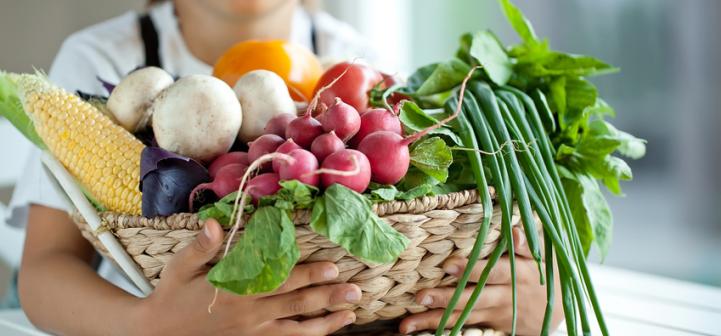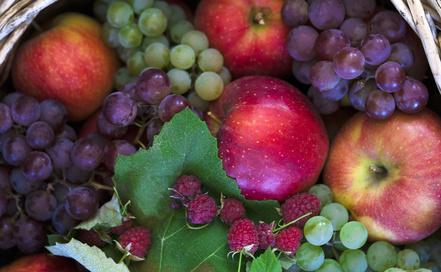
Research shows that the most effective way to get kids excited about eating more fruits and vegetables is to engage them in the growing, cooking, and tasting of delicious, fresh, produce. This is where farm to school programs can play a large role. In addition to working with local farmers and distributers to purchase local foods for school meals, holding seasonal tastings, developing school gardens, and bringing in local farmers and chefs to talk about their work, farm to school programs can be fun and engaging experiences for kids and can makes them far more apt to try and enjoy fresh produce again when they appear on school cafeteria menus or on their plates at home.
Knowing this, school staff engaged in a farm to school initiative at Watertown City Schools in Jefferson County, NY, developed a monthly harvest toolkit. This resource, available to staff in both hardcopy and digital versions, aimed to provide teachers with ways that they could teach their students about food and weave these lessons into core subject areas. The toolkit includes the following components:
- A local/seasonal food or foods to celebrate each month
- Both fiction and non-fiction texts about each month’s featured food
- Recipes or other cooking activity suggestions for the monthly harvest food
- Non-cooking lesson plan ideas
- A nutritional message related to each month’s harvest food
- Fun facts about each food
- Vocabulary words related to the food and the featured texts
- Jokes which might be included on handouts or shared as part of morning announcements
- Additional resources for teachers
The content of the monthly harvest toolkit is mainly geared toward K-2nd grades, but most of the information could easily be adapted for older students. Copies of each toolkit are kept in a central location at each elementary school, such as the library or staff resource room. To help teachers facilitate food-based lessons, school staff asked for donations of used kitchen items from their PTOs and other parents. These items were then organized onto mobile kitchen carts or tubs so that teachers can sign them out when they cook with their class so that they don’t have to bring in so many items from home.
This year, to further support these classroom activities, a monthly e-newsletter for staff and bulletin boards at each campus were created, reminding staff of the monthly harvest food and providing additional resources. These are also places to recognize teachers that are successfully leading monthly harvest activities and highlight other farm to school activities. Additionally, Cornell Cooperative Extension, through Eat Smart New York (a federal nutrition education program), has been able to provide monthly nutrition education activities linked to the monthly harvest toolkit. Looking forward, there may also be a way to partner with local master gardeners to link these activities to hands-on gardening in the classroom.
Additional Resources:
http://www.agclassroom.org/ny/matrix/index.cfm
http://www.fns.usda.gov/tn/great-garden-detective
Contributor
April Neujean, Cornell Cooperative Extension of Jefferson County
